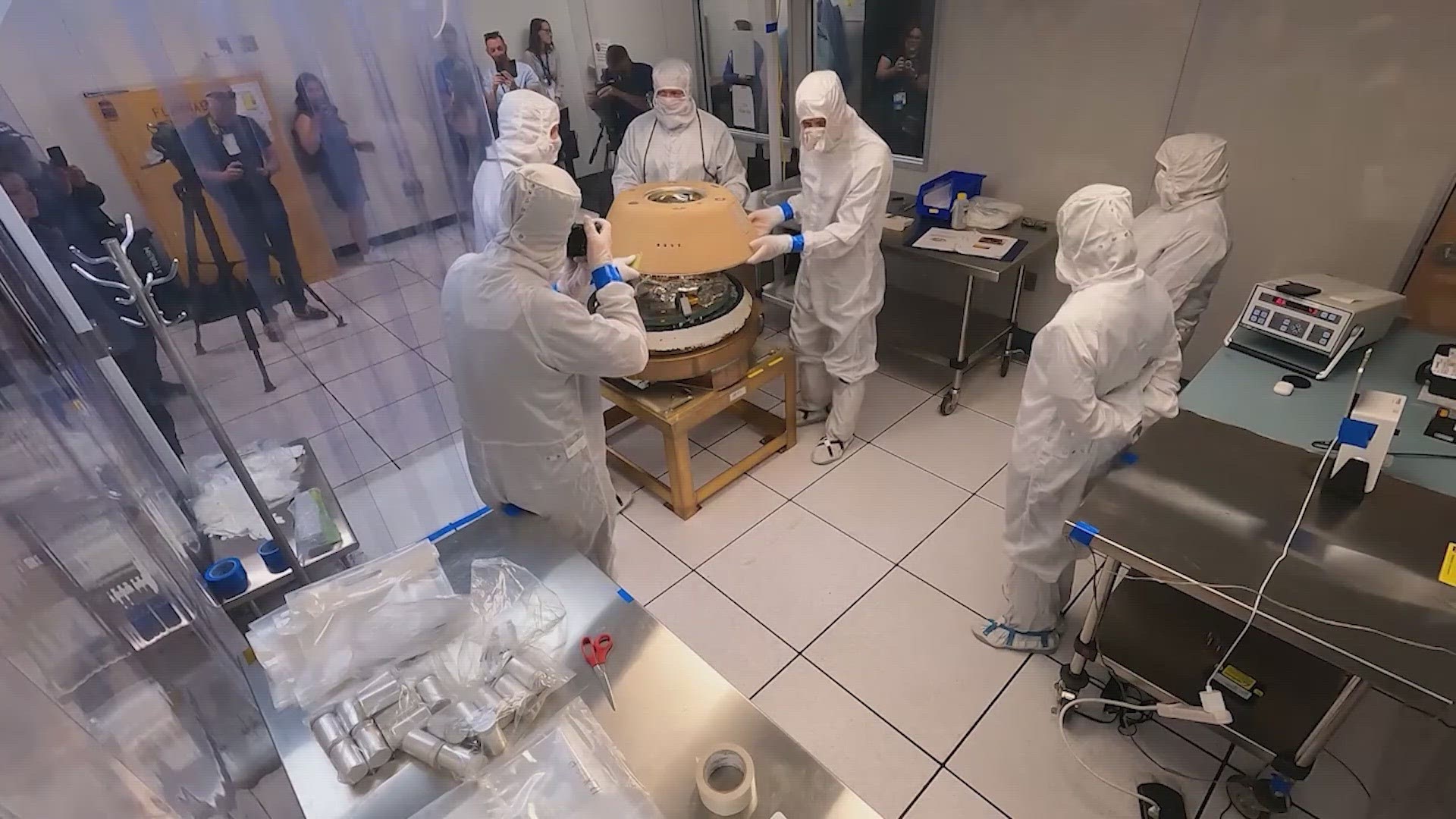HOUSTON — An asteroid sample that has traveled billions of miles completed its seven-year journey to Space City Monday afternoon.
NASA’s first asteroid samples from deep space could hold the answer to Earth's origin. The pebbles and dust are believed to be leftover building blocks from the dawn of our solar system.
The spacecraft Osiris-Rex was launched in 2016 and collected the sample from an asteroid labeled Bennu. It then made its way back to Earth, landing safely in Utah Sunday. You can see a replay of that landing here.
“Boy, did we stick that landing,” Dante Lauretta, the mission's lead scientist, said. “It didn’t move, it didn’t roll, it didn’t bounce. It just made a tiny little divot in the Utah soil.”
Teams worked to transport that sample from Utah to Houston where it will placed in a specially-made box in a special lab for scientists to study.
“We can’t wait to crack into it. For me, the real science is just beginning," Lauretta said.
Scientists will catalog what they have from the sample and study parts of it for the next two years. They’ll also distribute samples to other scientists around the world over time. Seventy percent of the sample will remain stored for future generations to study.
They estimate the capsule holds at least a cup of rubble from the carbon-rich Bennu, but won’t know for sure until the container is opened. Some spilled and floated away when the spacecraft scooped up too much material, which jammed the container’s lid during collection three years ago.
Japan, the only other country to bring back samples, gathered about a teaspoon during a pair of asteroid missions.
The pebbles and dust delivered Sunday represent the biggest haul from beyond the moon.
NASA scientists believe this sample has important information about Earth’s origins.
“We're looking for clues as to why Earth is a habitable world, this rare jewel in outer space that has oceans, it has a protective atmosphere,” Lauretta said. “We think all of those materials were brought by these carbon-rich asteroids very early in our planetary system formation.”
Meanwhile, the job’s not done for the spacecraft Osiris-Rex. It’s getting a new name as Osiris-Apex and will start its next mission to go after another asteroid named Apophis.
Something to note – NASA officials said last week that if a government shutdown does happen, the sample will still be safe and securely stored. They said some steps for the analysis may be delayed.

